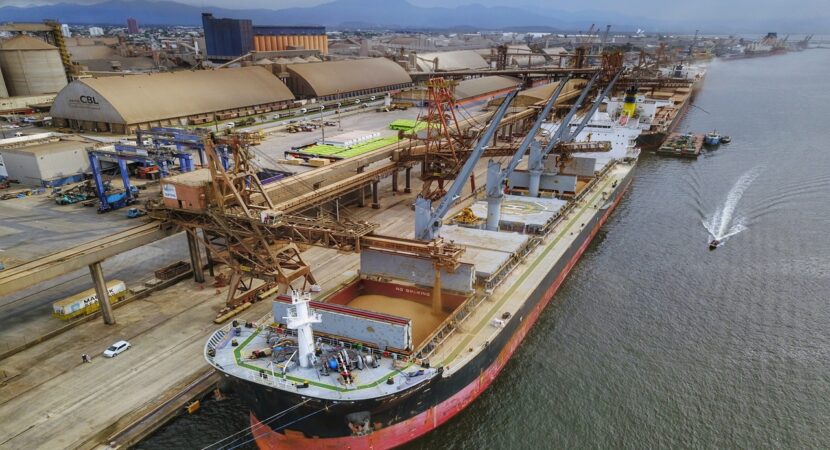
New orders for bulk carriers represent 6,8% of the deadweight tonnage of the total fleet of the multinational Genco, which has 41 ships
Due to the strong demand to transport commodities, it causes displacements in the supply of bulk carriers in Brazil, and the solution for shipments of wood and grains has been loaded on a type of larger ship normally used to transport coal and iron ore. More offshore oil fields were put up for sale by Petrobras in the Campos Basin – RJ, on this day (23/03)
Read also
- Nestlé invites candidates with and without experience for vacancies in RJ, MG, SP and other regions of Brazil
- 517 jobs, internships and apprentices to work at the multinational Ambev, the largest beverage company in the world, today March 24
- 73 jobs to work at the factory of the multinational General Electric Renewable today, March 24
- Billionaire investment in the Northeast: the largest green hydrogen plant in the world will be built in Ceará and thousands of jobs will be generated in the state
Capesize cargo ships will be used this month or next to transport lumber from Uruguay and grain from Brazil, according to shipping data from S&P Global Platts.
These large ships are typically used to transport coal and iron ore, while timber is typically transported in smaller vessels, according to Genco Shipping & Trading CEO John Wobensmith.
“It just goes to show how tight the overall dry bulk market is, which is set to get even tighter,” Wobensmith said in an interview on Thursday. The high freight rates "are not just something for the next three months", said the executive, according to which the trend should persist throughout 2022 due to the lower availability of ships.
Capesize ship freight rates are costing around US$2021 a day in 18, which corresponds to an increase of nearly 40% over the average in 2020, Wobensmith said.
Ship freight rates are expected to rise further in 2021 due to increased import and export in Brazil
And not to stop there, tariffs should rise even more, as a result of the increase in coal imports from India and Vietnam and the growing exports of grains and iron ore from Brazil.
In normal times, niche cargoes such as lumber tend to be delivered in smaller vessels such as the Panamax, which is the maximum size allowed for the Panama Canal. But the costs of these ships have risen so much that they now exceed the fees of the Capesizes.
New orders for bulk carriers represent 6,8% of the deadweight tonnage of the total fleet of the multinational Genco, which has 41 ships, according to the company's website.
There is reluctance to buy new ships due to changes in environmental regulations and uncertainty about the landscape with dominant clean fuel, Wobensmith said. Genco believes that ammonia will be used by industry in the future, she added.
Supply of solid bulk carriers was already under pressure because of Covid-19 restrictions
According to Gerry Craggs, managing director of Stemcor SEA, the supply of solid bulk carriers was already under pressure as Covid-19 restrictions related to maritime and dock workers slowed down cargo deliveries. Stimulus by governments to recover economies rocked by Covid-19 also boosts demand for raw materials, he said.
“We're in the phase of fiscal stimulus pretty much around the world,” Craggs said in an interview on Friday. “Demand has been increasing for pretty much everything, and we see that effect in the steel sector and in commodities.”
Dry bulk started 2021 off on the right foot, Bloomberg Intelligence analyst Lee Klaskow said in a report last week. “China and the expected global economic recovery set up one of the strongest starts to a quarter for dry bulk demand in a decade.”












